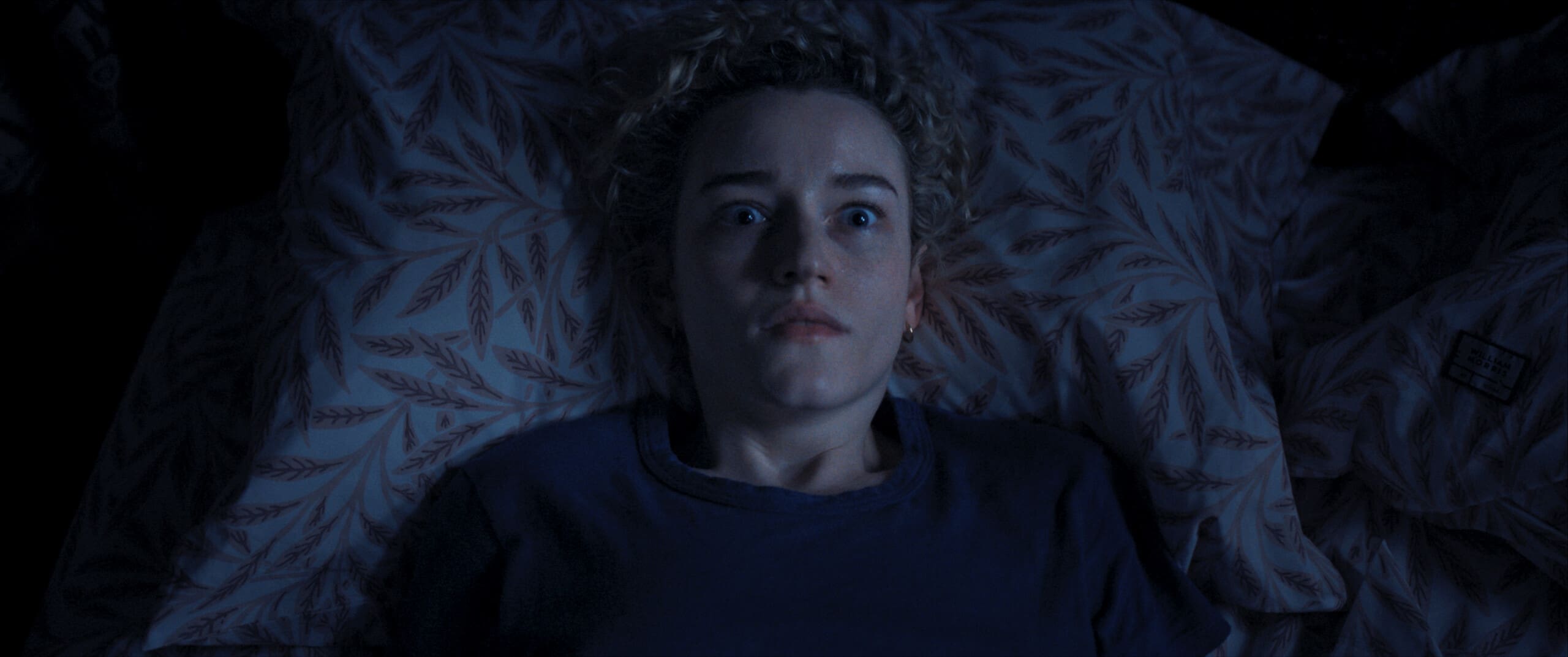
Written by Melly Merida
Weapons, written and directed by Zach Cregger, famous for his film Barbarian, returns with another horror film that ensnares its audience in a melting pot of horror, mystery, and a bit of comedy, whilst running fast with the ‘Rashomon effect.’
Cregger’s latest film is about 17 children getting out of bed at 2:17 a.m., running into the dead of the night, and never returning. All these kids are taught by Justine Gandy (Julia Garner), who shows up one morning to find her entire class gone except for one student, Alex Lilly (Cary Christopher).
From there, the story of Weapons spreads through six perspectives: Gandy, Alex, Archer Graff (Josh Brolin), Paul Morgan (Alden Ehrenreich), James (Austin Abrams), and Andrew Marcus (Benedict Wong). In each perspective, the stories and the mysteries slowly unravel into a plot of unnerving terror and a bit of tragedy.
This film significantly represents the ‘Rashomon effect,’ where multiple characters are retelling the events that lead up to the ending. Each perspective answers questions or explains who is responsible for the missing children. All the presented perspectives play an important role in showing how all these characters are connected to the larger mystery at hand. For example, in Justine’s perspective, the townsfolk consistently harass her, believing she is responsible for the children’s disappearance, and someone vandalizes her car, writing the word “WITCH” in red paint. Then the audience sees another character’s perspective, and it turns out they are the one who vandalizes her car.
Justine and Archer’s perspectives go hand-in-hand, beginning on a heartbreaking note with the townsfolk blaming Justine for the children’s disappearance, and Archer’s desperation to find his son. Their stories escalate to unsettlingly high levels through both of them having odd nightmares regarding the missing children and an old woman with red hair. Ultimately, their stories collide, and they work together to solve this mystery even if their methods are fairly questionable.
The horror in Weapons is terrific. There are plenty of scenes where the film places you into the character’s perspective, and then pure ambience replaces the film’s score. During Justine’s nightmare she walks into her classroom — it’s dark and quiet and the only thing you hear is the sound of a clock ticking. It then cuts to Justine’s POV and the audience and Justin watch as Alex raises his head with a painted smile. Not all horror movies need scary music; silence or ambience is enough to increase tension and make good jump scares (which are a bit predictable, but still effective).
Weapons contains bits of comedy, which usually can be an issue if not done correctly, but Cregger does a good job handling it. It provides a quick relief from the unsettling nature that we witness, for example, when we are watching Archer’s nightmare, it ends with him seeing the red-haired lady creepily smiling, and when he wakes up, his immediate reaction is “What the f–?!” Josh Brolin delivers this hilarious line perfectly, mimicking the audience’s thoughts.
This film contains minimal issues. The narrator is underutilized as they don’t seem to have an essential part in the plot, except to tell the story. This role would be more effective if the narrator were either one of the missing children or maybe Alex. The pacing in the film dips from time to time, especially during Justine and Paul’s POV scenes because we are just experiencing daily life. Besides his connection to Justine and his involvement at the film’s end, Paul’s presence as a character doesn’t have that much impact.
Weapons is an enjoyable yet creepy watch, combining the Rashomon effect and the melting pot of genres, similar to Barbarian. There’s something so charming about how Cregger portrays this mix because he balances them reasonably, not overusing the comedy or underplaying the horror. I recommend it to other horror lovers, especially those fans of Cregger’s work. However, keep an open mind while watching this film, as the ending can get crazy and appear comedic to some, but it is a very bloody, yet bittersweet conclusion.

